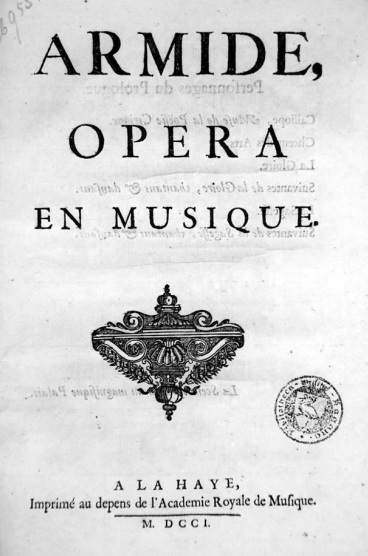Kennisbank
“Armide, the Huguenots, and the Hague.”

In the fall of 1701, a new French-language opera company in The Hague opened with a production of Jean-Baptiste Lully and Philippe Quinault’s Armide (1686), a choice that can now be confirmed by a libretto (fig. 1).1 Yet the company’s choice of Armide was not self-evident, nor did their production follow that of Paris to the letter. Considering why and how this company came to perform Armide fifteen years after it first had appeared in Paris also raises questions about the stakes of operatic revival more generally. For revival is a transformative process: new productions of old operas looked, sounded, and meant differently to the diverse audiences who attended them in places far removed from the origin point, both geographically and temporally. Most significantly, the production in The Hague included a new prologue. At the heart of this essay, then, is a reconsideration of the relationship between the prologue to Armide and the five acts of the opera proper. Faced with a mounting deficit, the company needed patronage, which might have guided the decisions they made regarding the prologue to Armide. Examining the choices made in The Hague in 1701 can lead to a new understanding of Armide’s premiere as well.
Continue ReadingOnderwerpen: 1700-1800 theaterwereld historische context muziekwereld weldoeners
Auteur: dr. Rebekah Ahrendt

